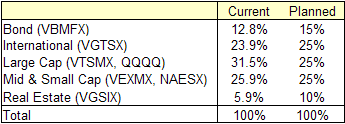A slightly off-topic post today.
It's no secret that American car manufacturers have been struggling for years, and have been losing ground to imported brands. Personally, I think that many foreign vehicles are a better value than American cars, particularly Japanese brands. Every car we have ever had, with one exception, has been either a Toyota or a Honda, and we have never had cause for complaint.
However, what I am writing about today is a (not so) new reason to avoid buying a car made by the so called "Big Three" U.S. car manufacturers.
Big Three management and labor alike have been fighting an ongoing battle to prevent Congress from enacting new Corporate Average Fuel Economy ("CAFE") standards. The proposed rules will require automakers to improve gas mileage for the vehicles they sell, but apparently the Big Three couldn't care less about global warming or about the true cost of America's reliance on fossil fuels from questionable regimes. All they care about is selling more of their gas guzzling behemoths, and damn the rest of us.
Rick Wagoner, Chairman and CEO of GM testified recently before the House Energy and Commerce Committee. Here is a
link to his full testimony, in which, while paying lip service to the environment, he makes it abundantly clear that GM is very much against the whole idea of CAFE standards. Instead he offers up such grand visions as bio fuel, hydrogen cars and electric vehicles. All visions that will take decades to become truly viable commercial products. Anything to prevent us from thinking about what can be done to reduce emissions today.
Another brilliant gentlemen, representing the United Auto Workers, the union representing... errr, auto workers...
testified before the Senate Committee on Commerce, Science and Transportation. He went as far as to say:
"... because of the foregoing structural problems in the pending CAFE bills, the UAW urges the committee to reject these bills..."
This testimony too is filled with platitudes and suggestions for building a better system to control emissions, but the real intention is clear. The American auto industry is doing its best to reject environmental standards in any way they can.
They will (and are) telling you that better fuel economy will compromise safety. They will tell you that "the playing field" is tilted against U.S. car manufacturers and in favor of foreign manufacturers. They will tell you that the American auto industry will collapse. They will say anything that comes to mind, but all I hear is "we are dinosaurs and we will continue to object to any emissions standards".
If Toyota and Honda can produce more fuel efficient vehicles, its time those relics in Detroit wake up and smell the diesel. Until they do, I have no intention of buying a single car that they make. If you care about the environment, you should consider the same strategy.
